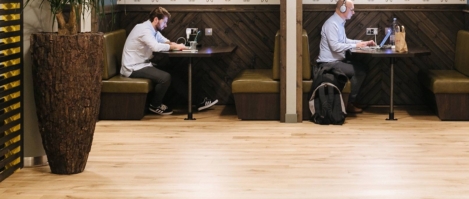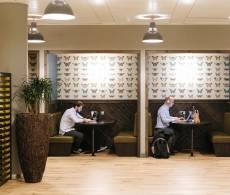January 19, 2016
Skilled migrants attracted to regional and city work hubs, not countries 0
 Highly-skilled migrants are increasingly attracted to cities and regions rather than countries, the latest Global Talent Competitiveness Index has revealed. Silicon Valley, Dublin, Helsinki-Espoo, Dubai [pictured] and London are the real hubs, rather than the United States, Ireland, Finland, the United Arab Emirates or the United Kingdom. The index, produced by Adecco Group, INSEAD and the Human Capital Leadership Institute, ranks the factors driving the international movement of skilled migrants of 109 countries, covering 87 percent of the global population and 97 percent of global GDP. Switzerland is in top place, followed by Singapore and Luxembourg in second and third place. At seventh place, the UK is ahead of Germany and France, but behind top performers such as the United States and Canada. It also trails behind in terms of gender diversity; ranking 56th for female graduates and 71st for the gender earnings gap.
Highly-skilled migrants are increasingly attracted to cities and regions rather than countries, the latest Global Talent Competitiveness Index has revealed. Silicon Valley, Dublin, Helsinki-Espoo, Dubai [pictured] and London are the real hubs, rather than the United States, Ireland, Finland, the United Arab Emirates or the United Kingdom. The index, produced by Adecco Group, INSEAD and the Human Capital Leadership Institute, ranks the factors driving the international movement of skilled migrants of 109 countries, covering 87 percent of the global population and 97 percent of global GDP. Switzerland is in top place, followed by Singapore and Luxembourg in second and third place. At seventh place, the UK is ahead of Germany and France, but behind top performers such as the United States and Canada. It also trails behind in terms of gender diversity; ranking 56th for female graduates and 71st for the gender earnings gap.




































December 21, 2015
From workplace wellness programmes to a positive workplace culture 0
by Mark Eltringham • Comment, Wellbeing, Workplace, Workplace design
(more…)